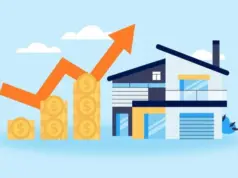Your money can grow dramatically over time because of the strong financial principle of compound interest. Your money will work harder for you and assist you in reaching your financial objectives if you earn interest on both your initial investment and the interest that has already accrued. The following are the main ideas about the influence of compound interest:
- Definition: Compound interest is defined as the interest that is generated on both the initial principal and the interest that has accrued over time. Because of the compounding effect, compound interest accelerates the growth of your savings compared to simple interest, which is simply computed on the principal amount.
- Time is your biggest ally: Give compound interest time to work its magic. The effect of compounding increases the longer your money is invested. By getting started as soon as possible, even with tiny sums, you can benefit from compounding’s strength over a long period of time.
- The frequency of compounding is important: Depending on the conditions of your investment or savings account, compound interest may compound annually, semi-annually, quarterly, monthly, or even daily. Your funds will increase more quickly the more often interest compounds.
- The rule of 72: Using the rule of 72, you may calculate how long it will take for your money to double at a specific interest rate. You may find the approximate number of years by dividing 72 by the interest rate. For instance, it would take roughly 12 years for your money to double if you invested it at a 6% annual return rate (72 divided by 6% is equal to 12).
- Consistent contributions magnify the impact: Making consistent payments to your savings or investment account can considerably increase the impact of compound interest. You boost the initial capital and give yourself more chances for compounding if you continuously invest or set aside a portion of your income.
- The power of dividend reinvestment: If you invest in stocks or funds that pay dividends, you can gain from dividend reinvestment. You can reinvest the dividends to purchase additional shares rather than accepting them as cash. As a result, your investment can grow even more because you are earning more dividends on the money that was reinvested.
- Begin investing or saving early, even with tiny sums: The earlier you begin, the more time you have to benefit from compound interest. It’s critical to begin started, even if you can only afford to save or invest a tiny sum at first. Your savings will increase dramatically over time thanks to the compounding impact, especially if you also make monthly donations.
- Refraining from debt and high-interest loans: Compound interest can be advantageous when it comes to investments and savings, but it can also be detrimental if you have high-interest debt. Compound interest debts, such as credit card charges, can quickly balloon and become challenging to pay off. It’s important to prioritise paying off high-interest loans as quickly as you can and to manage your debts sensibly.
- Use tax-advantaged accounts: One way to maximise the impact of compound interest is to use tax-advantaged accounts like Individual Retirement Accounts (IRAs) or 401(k)s. These accounts provide tax benefits including tax-deferred or tax-free growth, allowing your funds to grow tax-free without having to pay taxes every year on the interest generated.
Conclusion
Compound interest is a fantastic instrument for increasing your assets and savings, to sum up. You can use the power of compound interest to attain your financial goals and ensure a stronger financial future by comprehending its principles and making the most of time, consistent contributions, and reinvestment opportunities.










































